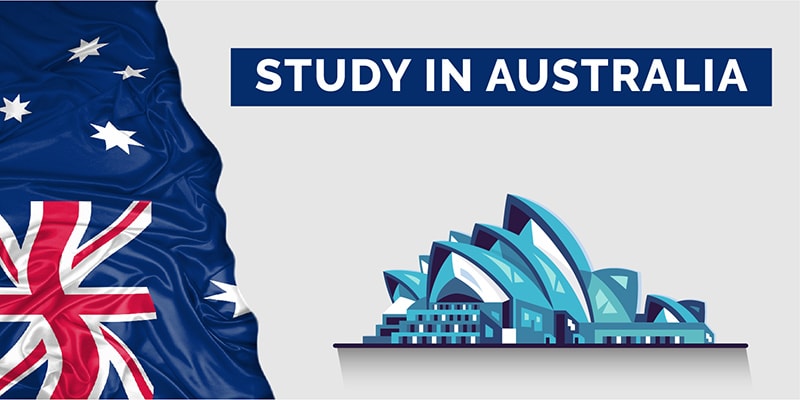Studying in Australia provides international students with a top-tier education in a welcoming and culturally diverse setting. Here’s a summary:
Key Points About Studying in Australia
1. Accreditation and Quality of Education
- Australia is home to prestigious institutions like the University of Melbourne, Australian National University, and the University of Sydney, known for their academic excellence and research contributions.
- The Australian Qualifications Framework (AQF) ensures that the education system maintains high standards across all study levels.
2. Available Programs and Duration
- The country offers a variety of programs: undergraduate (3-4 years), master’s (1-2 years), and doctoral degrees (3-4 years) in fields such as business, engineering, healthcare, and the arts.
- Vocational education and training (VET) programs are also available, focusing on skill-based learning.
3. Language of Instruction
- English is the main language used for teaching, and international students are required to prove their proficiency through tests like IELTS or TOEFL.
4. Admission Requirements
- Undergraduate admissions require high school transcripts, proof of English proficiency, and sometimes standardized test scores (such as the SAT).
- For graduate programs, a bachelor’s degree, academic transcripts, recommendation letters, and in some cases GRE/GMAT scores, are necessary.
5. Tuition Fees and Cost of Living
- Annual tuition fees for international students typically range from AUD 20,000 to AUD 45,000, depending on the university and program.
- Living expenses can vary, with students spending around AUD 21,000 to AUD 30,000 per year. Major cities like Sydney and Melbourne are more expensive, while regional areas tend to be more affordable.
- Scholarships and financial aid options are available to help reduce costs.
6. Learning Environment and Curriculum
- Australian universities emphasize independent learning, critical thinking, and research.
- Many courses offer practical learning through internships, co-ops, and research projects, providing hands-on experience during studies.
7. Career Prospects and Work Opportunities
- International students can work part-time (up to 20 hours per week) during the semester and full-time during holidays, gaining valuable experience and financial support.
- Upon graduation, students can apply for a Temporary Graduate Visa (subclass 485) to work in Australia for 2-4 years, depending on their qualifications.
- Australia also offers pathways for skilled migration, making it an attractive place for building a long-term career.
8. Campus Life and Facilities
- Australian universities offer excellent campus facilities, including libraries, labs, and sports complexes.
- Students can enjoy a vibrant campus life with access to clubs, societies, and cultural events, enhancing their overall university experience.
- Cities like Sydney, Melbourne, Brisbane, and Perth are known for their high quality of life and student-friendly environments.
9. Support for International Students
- Australian universities provide a range of support services, such as academic advising, career counseling, and orientation programs for new students.
- Dedicated international student offices help with visa assistance, accommodation, and healthcare needs.
10. Reasons to Study in Australia
- Australia is renowned for its academic excellence, diverse program offerings, and strong global reputation.
- Its multicultural society, high standard of living, and stunning landscapes make it an appealing destination for international students.
- The availability of post-study work options and clear pathways to permanent residency further enhance its attractiveness as a study destination.
Conclusion
Australia combines world-class education, a vibrant multicultural environment, and strong post-graduation career opportunities, making it an ideal choice for students from around the world.

